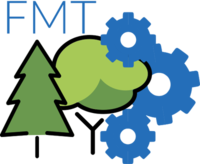#include <FMToperatingareacluster.hpp>
FMToperatingareacluster represent a potential cluster of multiple operating area. Each operating area is represented by a FMToperatingareaclusterbinary (binaries). The centroid of the potential cluster is also represented by a FMToperatingareaclusterbinary (centroid). If the centroid clusterbinary is active then the cluster is considered active.
◆ FMToperatingareacluster() [1/4]
| Heuristics::FMToperatingareacluster::FMToperatingareacluster |
( |
| ) |
|
|
default |
◆ FMToperatingareacluster() [2/4]
FMToperatingareacluster main constructor taking the (localcentroid) and (neighborsbinaries) has arguments, it's a non complete constructor.
◆ FMToperatingareacluster() [3/4]
| Heuristics::FMToperatingareacluster::FMToperatingareacluster |
( |
const FMToperatingareacluster & |
basecluster, |
|
|
const double & |
lminimalarea, |
|
|
const double & |
lmaximalarea |
|
) |
| |
◆ FMToperatingareacluster() [4/4]
◆ ~FMToperatingareacluster()
| Heuristics::FMToperatingareacluster::~FMToperatingareacluster |
( |
| ) |
|
|
default |
◆ getallmasks()
| std::vector< Core::FMTmask > Heuristics::FMToperatingareacluster::getallmasks |
( |
| ) |
const |
Returns all the mask contained by the cluster including the operating area centroid.
◆ getbinaries()
Getter for the binaries vector member data.
◆ getbinary()
Returns the corresponding binary const reference of the cluster corresponding to the given (mask).
◆ getcentroid()
Getter for cluster centroid binary.
◆ getfilteredcluster()
Base on a given mask the function is going to remove any binary that does not fell in the mask definition. It can reduce the size of the binaries.
◆ getmaximalarea()
| double Heuristics::FMToperatingareacluster::getmaximalarea |
( |
| ) |
const |
Get the maximal area of the potential cluster considering the number of binaries in the cluster.
◆ getmaximalobjectivevariable()
| int Heuristics::FMToperatingareacluster::getmaximalobjectivevariable |
( |
| ) |
const |
|
inline |
Getter for the maximal objective variable.
◆ getmaximalstats()
| double Heuristics::FMToperatingareacluster::getmaximalstats |
( |
| ) |
const |
Get maximal stats for the whole cluster.
◆ getminimalarea()
| double Heuristics::FMToperatingareacluster::getminimalarea |
( |
| ) |
const |
Get the minimal area of the potential cluster considering the number of binaries in the cluster.
◆ getminimalobjectivevariable()
| int Heuristics::FMToperatingareacluster::getminimalobjectivevariable |
( |
| ) |
const |
|
inline |
Getter for the minimal objective variable.
◆ getrealmaximalarea()
| double Heuristics::FMToperatingareacluster::getrealmaximalarea |
( |
| ) |
const |
|
inline |
Getter for the maximalarea.
◆ getrealminimalarea()
| double Heuristics::FMToperatingareacluster::getrealminimalarea |
( |
| ) |
const |
|
inline |
Getter for the minimalarea.
◆ gettotalpotentialarea()
| double Heuristics::FMToperatingareacluster::gettotalpotentialarea |
( |
| ) |
const |
Get the maximal potential area of the cluster.
◆ isvalidarea()
| bool Heuristics::FMToperatingareacluster::isvalidarea |
( |
const double & |
area | ) |
const |
Check if the (area) is a valid area for the cluster (between bounds).
◆ isvalidareabounds()
| bool Heuristics::FMToperatingareacluster::isvalidareabounds |
( |
| ) |
const |
Validate is the minimal and maximal area used by the user respect the binaries present in the cluster.
◆ operator=()
◆ setmaximalarea()
| void Heuristics::FMToperatingareacluster::setmaximalarea |
( |
const double & |
newmaximalarea | ) |
|
Set the potential maximal area of the cluster.
◆ setmaximalobjectivevariable()
| void Heuristics::FMToperatingareacluster::setmaximalobjectivevariable |
( |
const int & |
lmaxvar | ) |
|
Set the maximal objective variable of the cluster.
◆ setminimalarea()
| void Heuristics::FMToperatingareacluster::setminimalarea |
( |
const double & |
newminimalarea | ) |
|
Set the minimal area of the cluster.
◆ setminimalobjectivevariable()
| void Heuristics::FMToperatingareacluster::setminimalobjectivevariable |
( |
const int & |
lminvar | ) |
|
Set the minimal objective variable of the cluster.
◆ boost::serialization::access
| friend class boost::serialization::access |
|
friend |
The documentation for this class was generated from the following file:

